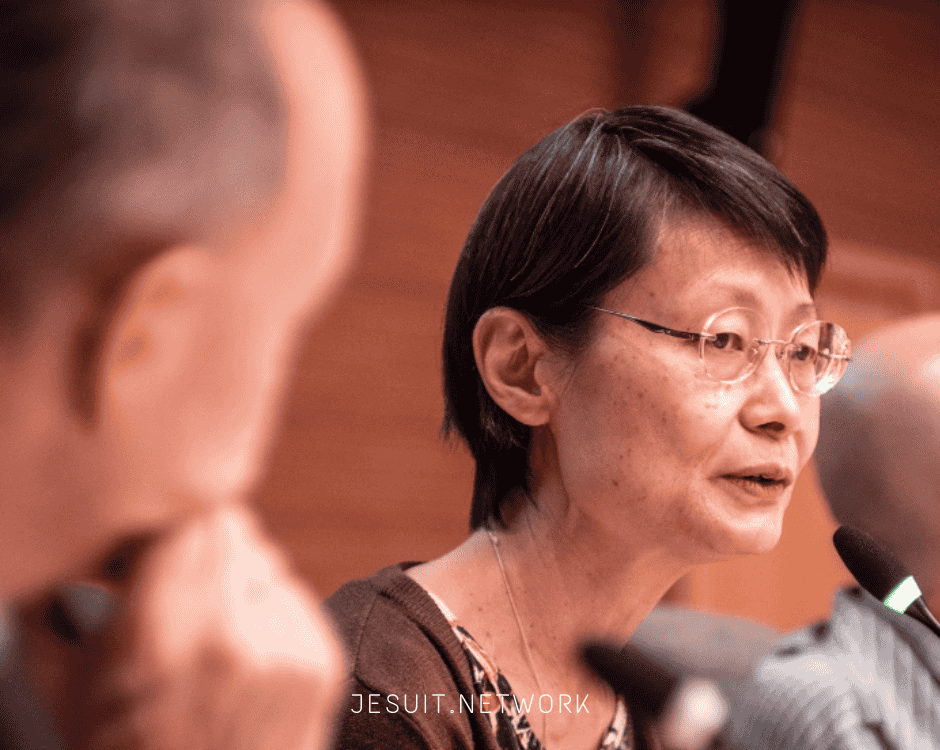Este sitio web utiliza cookies para que podamos ofrecerle la mejor experiencia de usuario posible. La información sobre cookies se almacena en su navegador y realiza funciones como reconocerle cuando vuelve a nuestro sitio web y ayudar a nuestro equipo a comprender qué secciones del sitio web le resultan más interesantes y útiles.
June 20th: Education opens the world – a joint effort of JRS and Entreculturas for refugees
To mark this year’s World Refugee Day, the Jesuit Refugee Service (JRS) and Entreculturas are launching “Education opens the world”, a campaign advocating for educational access for refugees and displaced people around the world, a fundamental right they are too often deprived of because of their displacement.
This is an exciting initiative from the point of view of collaboration as two Jesuit works join together to launch an international awareness-raising, advocacy and fundraising campaign.
Education is critical for refugees in emergencies and for those who are relegated to living for decades in camps or informal settlements. Educational settings provide safe and transformative environments for refugee children and youth. Study can broaden their imagination and widen their sympathies, despite their physical circumstances. Education opens up a world of possibilities, in which youth can dream and hope for a better future, and use their gifts and abilities to build that future for themselves and their communities.
At present, more than 75 million displaced children and youth have had their education disrupted by emergencies and prolonged crises. Losing access to education leaves these young people more vulnerable to exploitation and abuse, including gender-based violence, recruitment into armed groups, child labour, and forced marriage. Schools provide the stability that they need to heal from the loss, fear, stress, and violence experienced during times of crisis.
“If given the resources, refugee children excel. Probably because of what they have gone through, they see education as a way out,” says Mirreille Twayigira, who survived the genocide in Rwanda and the war in the Democratic Republic of Congo before finding safety in Dzaleka refugee camp, Malawi.
She had lost her entire family, and was severely malnourished, when she arrived at Dzaleka. However, Mirreille was able to enroll in a school founded by JRS, and flourished: she completed secondary school as one of the top six best students in the country, and gained a scholarship to pursue her education in China. She learned Mandarin, and eventually graduated from medical school in China last summer. Mirreille is now back in Malawi assisting fellow refugees.
Mirreille’s story is exceptional, but unfortunately she is also an exception. The barriers refugees and other displaced people face in trying to access education range from state policies and social practices to xenophobia in host communities. Globally, less than 50% of all refugees have access to primary education. That number drops to 25% for secondary education, and to only 1% for higher education.
JRS and Entreculturas seek to reshape this global reality. It is necessary to guarantee free, quality education to all children and young people who have been forced to leave their homes by conflict, persecution and other wounds – environmental disasters, the arms trade, developmental inequality – inflicted on our planet.
Access to a quality education can empower refugees to fulfill their own potential and, in turn, contribute to the growth, strength, and stability of their communities.
Education is a driving force for social change and inclusion. It can help overcome the walls of prejudice, hatred, and ideology that divide the world, and foster the development of more cohesive societies.
“Food, shelter, and medicines are very important, but they are not enough. Refugees also need education, because they are tomorrow’s leaders,” says Mirreille.
This campaign falls within the broader Global Education Initiative *GEI, a key component of the JRS response aimed at doubling the number of people served in our educational projects to more than 240,000 and raising $35 million by 2020. Support refugee education today.
Adapted from original article published by Jesuit Refugee Service International.





